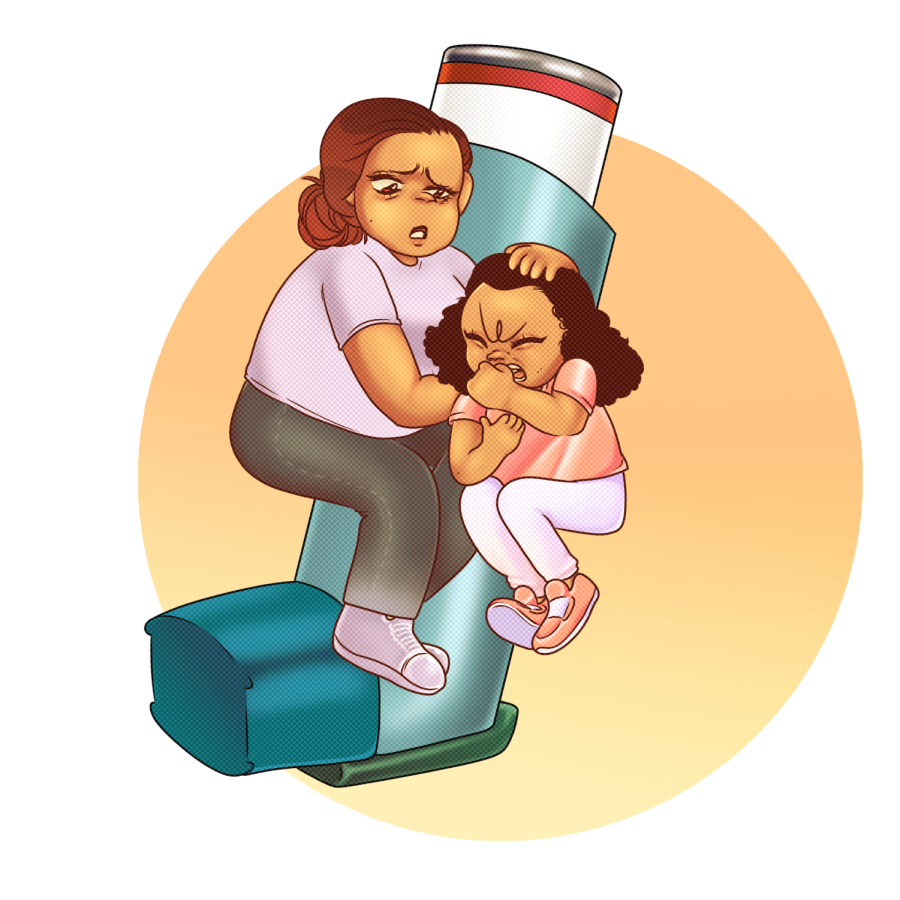UT family asthma study branches out to local school districts
April 17, 2022
Editor’s Note: This article first appeared in the April 12, 2022 flipbook.
A UT program centered on helping Latinx families learn and manage their children’s asthma is expanding their recruitment to Austin school districts.
Program researcher Sofia Ocegueda said the program will receive $3 million from the National Institutes of Health in funding by 2025. She said their goals for the spring semester are to strengthen their connections with school districts and health clinics in the Austin area to recruit more families.
The Family Asthma Study, a program launched in Sept. 2020, aims to teach Latinx families asthma management and intervention for their children that align with the family’s religious beliefs and lifestyles. According to the Environmental Defense Fund, Latinx children are “40 percent more likely to die from asthma” than white children and 10% more likely to suffer from asthma.
“Latinx kids have a disproportionate amount of uncontrolled asthma,” said Ocegueda, a graduate student in educational psychology. “They might have more visits to the ER or tend to miss school days more often because of their asthma symptoms; … that might affect their outcomes in school.”
Program recruiter Samantha Garcia Cruz said the group currently collaborates with a Community Care Clinic as well as Children’s Health Express and the Children’s Wellness Center. The group hopes to become involved with local schools and recruit participants through nurses who would identify children with asthma and then offer the Family Asthma Study to the parents, she said. Currently, they have filed applications to work with Round Rock ISD and plan to apply in Pflugerville and Del Valle.
“What’s different about this from other asthma programs is that this one includes a social behavioral component,” Cruz said. “That means showing them coping strategies to lower their stress levels, which hopefully helps their asthma (in addition to) helping them calm down.”
Ocegueda said the program works with families in sessions where they measure participant’s asthma control levels and administer a lung function test. In total, there are seven sessions and a post-assessment six and twelve months after the initial sessions.
“The program teaches what asthma is (and) what happens in your body when you’re having an asthma attack,” Ocegueda said. “It also teaches about control, how to monitor symptoms, how to use a peak flow monitor and then how to monitor or be aware of triggers for asthma.”
Although the program is still in the process of recruiting families, Cruz said they began post-assessments with two families in late March. She said the program hopes to include 280 families.
Principal investigator Erin Rodríguez said she hopes that through this study, they find ways to support the Latinx community and families with asthma and reduce disparities.
“In a child’s life, if their asthma is under control, they’re able to engage much better in all activities of childhood, school, physical activity and their relationships with friends,” Rodríguez, an associate professor in educational psychology, said. “I hope that the work we’re doing can contribute in some way to allowing those kids to live healthier and happier lives.”



